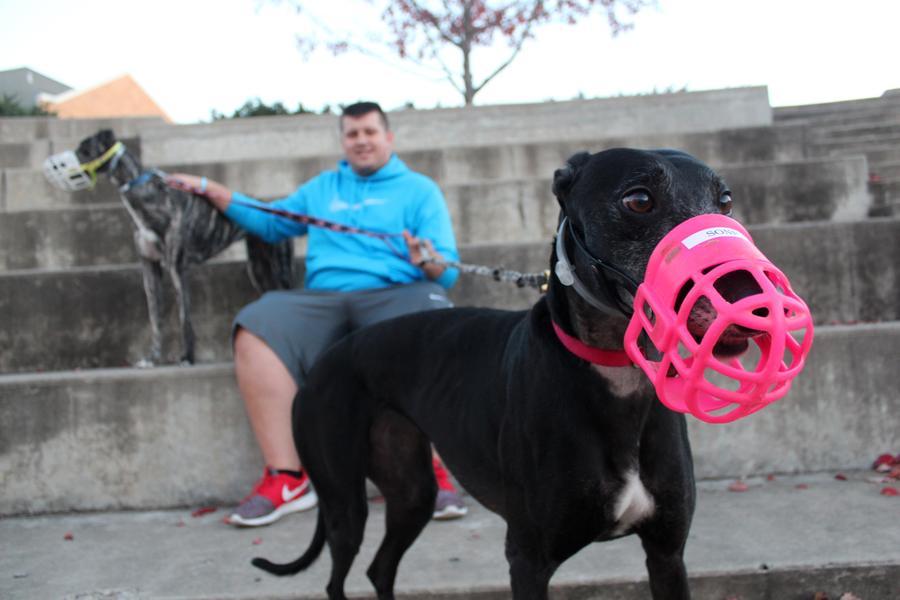
On a nice fall evening with two greyhounds by their side, a person can have a lot of fun on a walk. Fellow dog lovers stop to talk, leashes entangle each other and the dogs run in every direction.
MU student Jacob Stockton knows this all too well. He gets to walk Piper and Sonic, lovable and energetic greyhounds, who are two of the seven that the University of Missouri Veterinary Health Center owns. They act as blood donors for other local dogs.
The greyhounds live in the small animal hospital vet center on East Campus Drive. They come from many places, like breeders and rescue groups, or they are retired race dogs.
As part of their care, students volunteer to walk the greyhounds. There are two shifts a day, one in the morning and one in the evening, and students can schedule the times they are available to walk. To become a part of the group of volunteers, a student must complete a background check and attend a 20-minute orientation that Stockton said included information about the dogs’ safety and paperwork. The greyhounds may also be adopted by qualifying families.
Stockton heard about this opportunity through his service-learning class this semester. He has his own dog back home in southern Missouri, so this program allows him to spend time with dogs while he’s at school, too.
A typical dog-walking session lasts around an hour, and they can go anywhere as long as they walk, according to Certified Veterinary Technician Matt Haight, who is in charge of the greyhound program at the Vet Center. Before the dogs are ready to walk, they must wear a muzzle, primarily for their own health and safety. On walks, the greyhounds could snatch and gobble something up that would not be good for them, such as trash, cigarette butts or discarded food from the dining halls. As blood donors, their health is of utmost importance.
The blood is used for when dogs need blood transfusions, in cases where they’ve lost a lot of their own blood. An average dog blood donation is 450 milliliters if the dog is over 50 pounds in weight. The donations can be stored for up to 42 days.
“Greyhounds commonly have a more universal blood type, similar to Type O blood in humans,” Haight said.
Piper and Sonic wanted plenty of attention, and they knew they could find it with a walk through campus, letting any passerby pet them. They are both excited, energetic and curious, wanting to always sniff something, keeping Stockton tangled up in leashes.
These greyhounds are a pathway for student involvement on campus and save the lives of local pets, living up to the definition of man’s best friend.
_Edited by Katherine White | [email protected]_